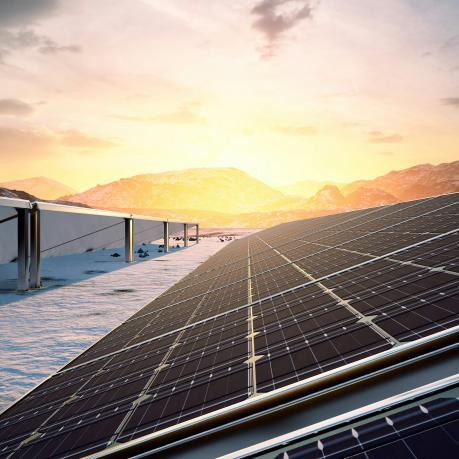
From ambition to implementation: delivering the energy transition and industrial transformation in 2026
Insight by Sandra Ghosh, Susanne Lein
News publ. 19. Mar 2021

The focus of World Water Day on March 22 is the value of water. How can this value be defined and made more visible in order to better protect global water resources? Twelve research projects supported by the GRoW programme show how water can be used more sustainably.
The global water crisis, triggered by human behaviour, is one of the great challenges of our time. Participants in the international GroW projects – over 300 individuals from research, politics and industry – have developed innovative approaches to measure the value of water, identify the risks of increasing water scarcity and determine solutions. The researchers call on politics and industry to take the value of water into account in all decisions. The potential of digitisation, they argue, should be consistently put to use and the long-range effects of water use, such as the water footprint of global supply chains, must be taken into account. In addition, good governance structures, with decisions that are based in science and made transparently, are also needed in order for the value of water to flow into decision-making processes.
Tools developed by researchers in the GRoW WELLE project enable companies to better determine their water footprint. The project found that, in many companies, over 95 percent of the total water consumption in the manufacture of products comes from the supply of energy and materials. If the value of water as a production factor is made visible at all points in the supply chain, companies can take measures to reduce water scarcity at local hot spots in their value chains. Examples include cooperation with suppliers, consideration of the water footprint in product development (ecodesign) or the sustainable procurement of water-efficient materials.
The world’s largest consumer of globally available water resources is agriculture. ‘We are developing tools to monitor and determine the efficiency of agricultural water use worldwide. In this way, we can identify global hotspots in water management in agriculture that have an impact on food production, ecosystems and energy generation,’ says Wolfram Mauser, coordinator of the GRoW project VIWA, Chair of Geography and Geographical Remote Sensing, LMU.
Water is also an important factor in the energy transition: considerable amounts of water are required to extract raw minerals – often in regions that are already suffering from water stress. Case studies and global modelling in the GRoW project WANDEL show that strategies for the energy transition not only have the potential to reduce greenhouse gas emissions, but also have to take water requirements into account. In this way, clean energy does not have to come at the expense of scarce resources in arid regions of the world.
The GRoW funding programme by the Federal Ministry of Education and Research comprises 12 international cooperation projects with 90 partner institutions in Germany and over 40 case studies worldwide. Some 300 researchers, practitioners and stakeholders are involved for a period of three years. A central aspect: the achievement of the goals of sustainable development, in particular SDG 6 (‘Ensure availability and sustainable management of water and sanitation for all’). Participants in the GRoW projects have published their findings on the protection of water resources in a globalised world. adelphi research is leading the networking and transfer project GRoWnet, which provides support for the GRoW research activities. GRoWnet aims to identify and effectively use synergies between the joint projects. Against this background, adelphi research actively supports the project plans in transferring their research results and solutions to politics and practice.
Contacts to the individual research groups are available on the GRoW website. Contact person: Elsa Semmling, grownet adelphi [dot] de (grownet[at]adelphi[dot]de).
adelphi [dot] de (grownet[at]adelphi[dot]de).